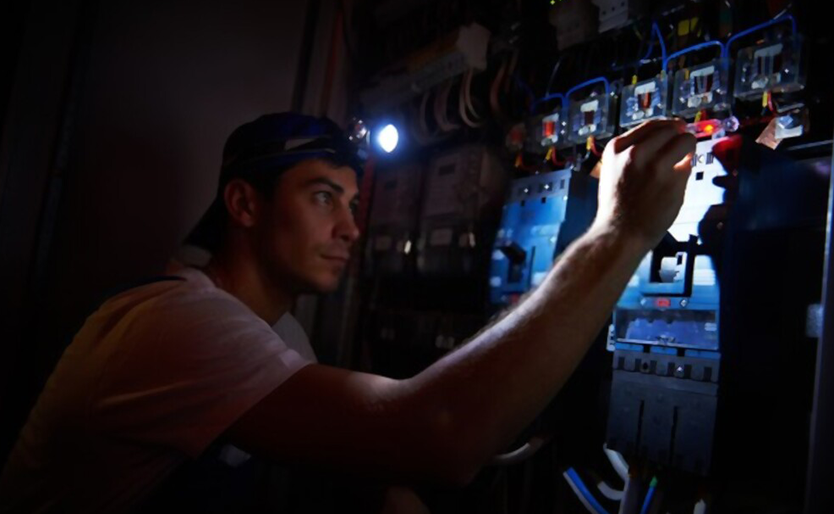Electricity is both a life-saver and a potential disaster in the making. From lights to appliances, it makes your everyday more comfortable and efficient; but these benefits come with risks that you can’t ignore. Poor wiring or faulty equipment could cause an electrical emergency at any moment without warning – so be prepared by following five simple steps in case of emergencies caused by electricity.
1. Be always ready with a plan for emergency
Learning to perform CPR is an essential part of any emergency plan. It can be used for drowning, choking on vomit or other foreign objects, and heart attack victims with no pulse. Knowing how to do first-aid if you are injured yourself during a disaster is also helpful, as it reduces your risks of injury even more than just knowing how to conduct basic life support.
For households and workspaces alike, having emergency exits at hand will make getting out quickly easier when fleeing from fire should the worst happen (or if there’s another electrical hazard). Finally, don’t forget about keeping fire extinguishers handy, so they’re ready when needed most – not only does it reduce fires, but helps keep the property safe, and their use could save lives too.
In the event of an electrical emergency, it’s crucial to have a plan in place. Make sure you’re familiar with your goals, so that when disaster strikes, you’ll be prepared.
2. Handling the electrical emergencies
Electrical emergencies can be a real hassle. You might think they’re not worth it, but don’t underestimate the risks of electrical shock or fire – both pose severe safety and protection threats! Luckily for you, though, there are some things that you can do to minimize these dangers if an emergency ever strikes.
The four electrical emergencies are electric shock, power outage, downed power lines, and an electrical fire. Each emergency poses a different risk to safety, but you can minimize injuries by learning how to handle these incidents with care.
Electrical fire
Be careful when tampering with exposed wiring. A fire could be sparked from any number of sources and is difficult to put out due to the extreme amounts of energy that a power outage can produce. One must not forget this danger, as they make their way through an electrical area where faulty components are present – cutting off the electricity at its source will stop fires from starting while also reducing electrocution risks associated with water use on such materials. If you find yourself near too many overloaded circuits, or cannot contain your fear for safety’s sake, never hesitate to leave immediately.
Electric shock
Electric shock can be one of the most dangerous electrical emergencies and, if you’re close to an incident, it’s best not to reach out. In any case where contact is made with a person who has been electrically injured or electrocuted from touching something with live electricity, then your own body could also suffer severe injury due to being shocked by electricity.
The first thing on your mind should be getting help for them – but stay away! You might want to try using a broomstick or another non-conductive object like rope instead; this will allow you some distance between yourself and the victim without risking electrocution too. If possible, turn off whatever appliance caused the problem in order to cut power supply – but always call for immediate medical aid.
The power line went down
Fallen power lines are hazardous to anyone nearby. Treat them as live cables and stay away from the fallen wire at all costs, or you could get electrocuted! Don’t touch any conductive materials or even trees that have moisture to avoid this danger – call for help if a line falls near your house.
Power outage
Power outages or blackouts can be dangerous if not dealt with properly. If you notice your electricity has gone out, it is crucial to shut off the mains power switch and turn on a lamp to protect your other appliances when the energy comes back.
It could also help in cases where downed lines caused by storms have cut power supply to nearby homes or even an outage due to too much demand for electric use over available resources, which would need expertise from professionals who know how best to protect people’s electrical safety during these times until proper repairs can take place .
Preparing for a power outage gives many people peace of mind. When storms cause an outage, it’s always vital to have an emergency kit and alternative lighting options on hand. It can be crucial when electricity is restored as well – negligence could lead to electrocution or fire if anything in your electrical system isn’t handled properly.
3. Call for help
Calling for help should always be the first step in any electrical emergency. Without time, you can’t succeed at handling emergencies, so it’s crucial to call an ambulance as soon as possible when there are signs of electrocution or electric shock. And even with other types of injuries from electricity, such as burns and wounds, calling for professional aid could make the difference between life and death. Never hesitate to contact your local authorities if power lines have been downed too.
Wrap-up
Ensuring your home is safe from all electrical-related accidents comes down to planning and knowing what to do in the event of an emergency. The best way you can prepare for this is by scheduling regular inspections, making sure that everyone knows who they should call if there’s ever a problem with electricity at their house or business. When possible, preventing emergencies saves time and helps maintain safety on top of everything else.

